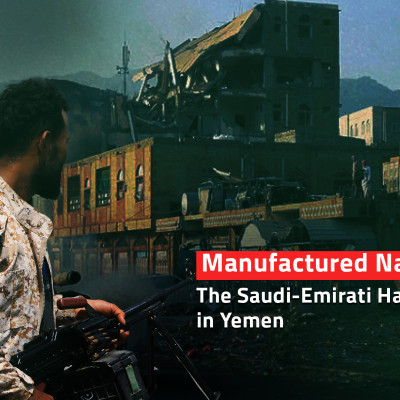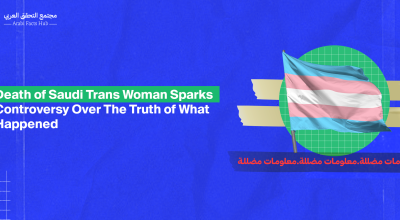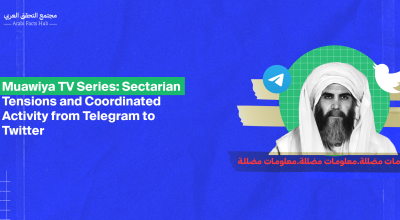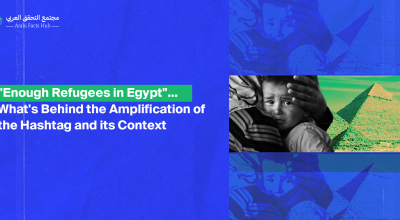Coordinated Campaigns of Exaggerating and Downplaying Iranian and Israeli Strikes
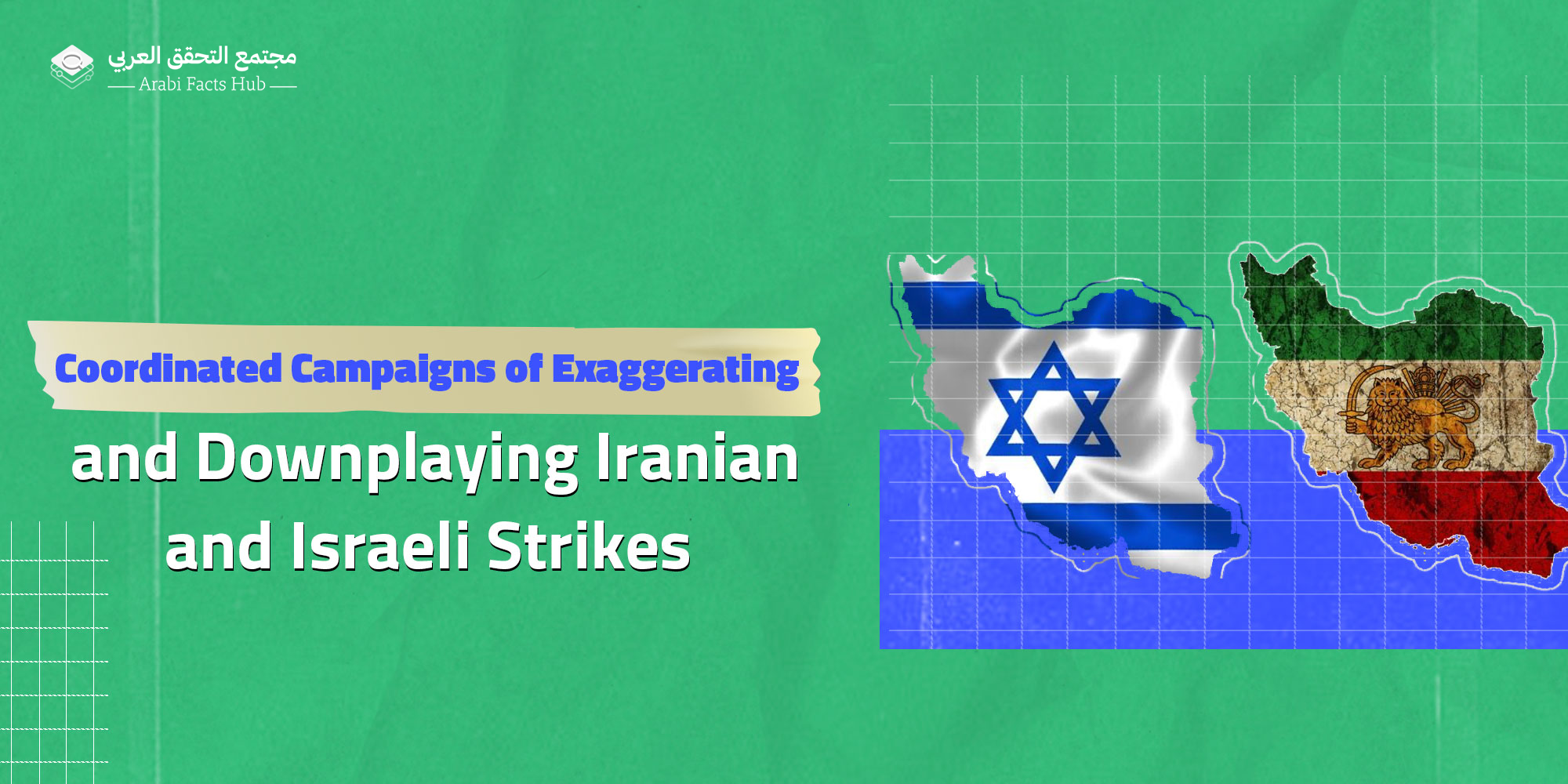
Regional tensions escalated after Iran struck Israel in mid-April, igniting the virtual space with campaigns and posts revealing the divergence of stances towards the unprecedented escalation by the two parties.
In early April, the cold war between Iran and Israel materialized into real war when Israel bombed the Iranian consulate in Damascus, resulting in casualties, including prominent leaders in the Quds Force. Tehran responded by launching drones and missiles, most of which were intercepted by Israel's defenses and its Western allies, in addition to Jordan. Later, Tehran accused Tel Aviv of striking a base in the city of Isfahan, while the Iraqi Popular Mobilization Forces blamed Israel for bombing the "Kalsu" military base.
Social media platforms were soon filled with hashtags promoting the Iranian strikes and criticizing Jordan's participation in intercepting "aerial bodies." In contrast, hashtags emerged describing Tehran's strike as a "farce" and holding it responsible for the escalation.
Among these hashtags were: "#Harsh_Revenge, #Israel_is_a_joke, #Fulfilled_promise, #Tomato_King, #Iran_Punishes_Zionists, #Face_Saving_Drama, #Arab_Magi, #No_to_Escalation_in_the_Region."
A total of 501,000 tweets were published under these hashtags, generating three million, 269 thousand interactions, and viewed 184 million times, according to statistics from Meltwater. There was a peak in tweeting on all of these hashtags on April 13th and 14th, with a total of 556,000 tweets. 571,000 tweets were published under these hashtags from accounts with undisclosed locations.
Activity on hashtags related to the Iranian strike and the mediums used - Meltwater
Most influential accounts
Participating in the wave of tweeting on these hashtags were over 133,000 accounts, including those known for their activity in online campaigns. Investigations by various Arab fact-checking communities revealed the role of some of these accounts in manipulating social media policies, employing them in unauthentic activities ranging from promotional campaigns reflecting official stances of countries and armed factions, to others aimed at trolling and tarnishing opponents. Several of these accounts prominently display flags of Iran, Lebanon, Iraq, Yemen, Saudi Arabia, and Egypt in their profiles, along with images of figures such as Iranian Supreme Leader Ali Khamenei, Hezbollah Secretary-General Hassan Nasrallah, Houthi movement leader Abdul Malik Al Houthi, and Saudi Crown Prince Mohammed bin Salman.
For example, tweets from the account @iraninarabic_ir contributed to the appearance of 12,851 new tweets issued by 8,401 other accounts, viewed 563,000 times. The account stood out for its participation in the hashtag #Fulfilled_Promise, a term used by Tehran to refer to its strikes against Israel, gathering 243,000 tweets from at least 71,000 accounts. In addition to its contributions to the hashtag in Persian, #Harsh_Revenge, one of the prominent hashtags that regained activity during the strikes, amassing over 197,000 tweets. The account also had two tweets in Persian generating 2,435 related tweets by 2,111 accounts.
The "Iran in Arabic" account, created on X in February 2020, boasts a following of 393 thousand accounts. While it does not present itself as an official outlet managed by the Iranian government, it identifies as the "voice of the Islamic Republic of Iran in the Arab world." It frequently publishes promotional material that aligns with Iran's official narrative on events. Jawad Nasrallah, son of Hassan Nasrallah, appeared in the account's list of followers, alongside journalist Hussein Mortada, one of the prominent media voices aligned with forces linked to Iran.
In addition to posting 26 tweets on #Fulfilled_Promise, Hussein Mortada shared 15 tweets on the hashtag #Israel_is_a_joke, contributing to its popularity, given his following of 631 thousand people. As previously detailed in our investigations, the Lebanese journalist's involvement extends to promotional campaigns for Hezbollah and the Syrian government, as well as efforts aimed at targeting opposition figures and critics of the party.
On the hashtag #Israel_is_a_joke, influencer Ali Akbar Raefipour was also active. Raefipour, who was previously banned from leaving Saudi Arabia in 2023 after making negative comments about the kingdom during the Hajj season, is known as one of the controversial Iranian influencers. He is recognized for his lectures on sectarianism, Freemasonry, and conspiracy theories.
Saudi accounts also played a role in spreading hashtags with a negative tone, suggesting that Iran's strikes on Israel were merely a #Face_Saving_Drama, and that those supporting them are from #Arab_Magi. Three tweets from the Saudi Deterrence Account, @s_hm2030, on the hashtag #Face_Saving_Drama, sparked 1239 new tweets on the same topic from 1162 accounts. The account has 1.4 million followers and typically adopts official Saudi positions in its tweets.
Cross-posting on social media
The emergence of identical cross-posted social media content suggests a concerted and coordinated effort to amplify and proliferate hashtags related to the Iranian and Israeli strikes, in light of attempts to bolster narratives from various parties regarding these events. This is a distinctive feature of pro-Iranian groups in the Arab world, a customary practice for these factions. Typically, an online campaign begins on platforms like Telegram before echoing across other platforms like X. During the recent tensions, the Telegram channel Sabreen News, closely associated with the Islamic Resistance in Iraq, aired a snippet of news claiming that a US envoy had urged Middle Eastern foreign ministers to seek Iranian de-escalation before its strikes on Israel. Iraqi accounts on X picked up the story, reposting the update as presented by Sabreen News on Telegram.
Shahd Al Yasiri, another Iraqi channel on Telegram with over 120,000 subscribers, is one of the influential propaganda channels for factions supported by Iran. The channel, which identifies itself as an affiliate of the Popular Mobilization Forces, has accounts on other platforms using the same name. Prior to and during the strikes, the channel published dozens of posts containing the hashtags #Harsh_revenge and #Fulfilled_promise, which included various dates to carry out "revenge." There werr repeated, identical posts on X mirroring its publications.
Israeli National Security Minister Itamar Ben Gvir described the strikes targeting the city of Isfahan (340 kilometers south of Tehran) as "ridiculous." Reports in the media interpreted this as his objection to Israel's response to Iran's strikes using drones. At that time, a new hashtag emerged, #Israel_is_a_joke, launched by Simia Media Forum, responsible for Hezbollah's online activities, which X has suspended a few times. The hashtag initially appeared on the group's Telegram channel in the form of video clips and posts mocking Israel's response. Lebanese accounts then reposted the same content, featuring an image of Hassan Nasrallah, alongside others from Iran, bearing the Simia logo. Over 5,883 accounts participated in promoting the hashtag, generating 16,945 tweets, with 11,800 originating from unidentified locations.
The same practice was repeated by Houthi channels on Telegram, such as "Sadeed Network" and "Yemeni Popular Media," known for their involvement in promoting the Houthi group. The two groups published at least 140 posts and played a role in amplifying the hashtag #IranـDisciplinesـZionists, which garnered 21,741 tweets, including 15,000 tweets from accounts with unidentified locations, while five thousand tweets originated from Yemen.
AI generated images
Images generated through artificial intelligence circulated on the hashtag. They were utilized to increase momentum and evoke emotional responses. This type of imagery appeared on Iranian and Pakistani accounts, especially on hashtags like #ISrael_is_a_joke, #Harsh_revenge, #ThirdWorldWar, and #SalmaniElectronicArmy. One of the contributors of these images is Saeed Bamaram (@BamaramSaeed), who commented on the image on X, saying, "I asked AI to simulate an Israeli attack on Isfahan, and this is what it gave me." Bamaram generated an image depicting a small-scale Israeli parade that is humorously viewed by a group of individuals using stock images from the internet to mock the recent Israeli strikes on Isfahan.
Meanwhile, AI generated images were circulated along with English commentary stating that Gaza residents feel happy for the first time in six months due to the Iranian strikes.
The hashtag #Save_Face_Drama featured similar examples of an alternative narrative to Iranian propaganda, relying on conspiracy theories. The fabricated footage simulated imaginary meetings and encounters between Iranian, American, and Israeli officials. These images aligned with the skeptical message of other posts questioning Tehran's strikes. The hashtag #Save_Face_Drama garnered 39,462 tweets, including 25,000 tweets from unknown sources, with Saudi Arabia leading in terms of tweet volume on the hashtag. The fabricated footage was reposted by Egyptian and Saudi accounts, some associated with the so-called "electronic Saudi army," one of the prominent Saudi coalitions launching virtual campaigns targeting opponents and countries not aligned with the kingdom. Arab fact-checking pages have previously exposed the role of the electronic Saudi army.
A network of fake Egyptian accounts
Approximately a week after the Iranian strikes, the Kalsu base, shared between the Iraqi Army and the Popular Mobilization Forces in northern Babylon, was targeted by rocket fire. Israel was accused of carrying out the missile strike, which resulted in the death of at least one member of the Popular Mobilization Forces and the injury of eight others. Hours after the strikes, the hashtag #No_to_Escalation_in_the_Region emerged, with participation from 1348 accounts posting 6722 tweets. Among these, 5300 tweets were from accounts with unknown locations, nearly equivalent to the number of retweets, which comprised 83.3% of the total tweets—a record indicating coordinated activity. Only 578 tweets were original. The hashtag propagated a conspiracy theory suggesting that the strikes were part of an Iranian-American-Israeli plan to destabilize Iraq, particularly in response to the recent attacks on the Kalsu base. The wave of tweets under the hashtag was driven by an advanced network of Egyptian fake accounts, some of which had previously participated in a campaign following comments made by the grandson of former Egyptian President Hosni Mubarak regarding Egypt's economic situation in January of last year. For instance, the account @Agj_779, which participated in the campaign against Mubarak and his grandson, also appeared in the #No_to_Escalation hashtag.
Saudi Arabia topped the list of countries with the most tweets. Accounts registered in Saudi Arabia were part of the same fake network that focuses on Egyptian events. Some of these fake accounts deliberately add various geographic locations to their profiles to expedite the trending of hashtags.
Type of tweets and the most tweeting countries in the hashtag #No_to_escalation_in_the_region - Meltwater
Fake accounts used stock images from the internet, some of which may have been stolen from their rightful owners. For example, the account @bello2oO, created in April 2023, claiming to belong to a person named Baraa Fathi residing in Ismailia, had stolen its profile picture from an Egyptian social media influencer named Ibtihal Mohamed, who resides in Al Mahalla Al Kubra in Al Gharbia governorate in Egypt. This was confirmed through our investigation into the real owner of the image.













































